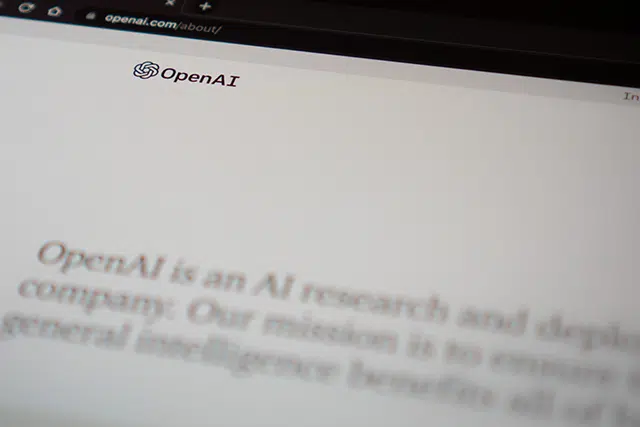5 tech trends shaping the future of healthcare digital transformation
Posted: September 12, 2023
In a world where technology continues to redefine the boundaries of possibility, healthcare is no exception.
The future of healthcare is increasingly becoming intertwined with digital transformation, ushering in a new era of patient care, operational efficiency, and data-driven decision-making.
Digital transformation as a concept isn’t new: arguably since the invention of the World Wide Web, healthcare has been on a journey to finding new ways to drive better patient outcomes through the digitalization of services, processes and technology.
As a project, digital transformation is never really ‘complete’.
Every day, we’re seeing innovative technology evolve with the potential to drastically change the way we live. This year we’ve seen artificial intelligence (AI) take center stage, with blockchain, quantum computing and biometrics all close behind.
So, what does the future hold for healthcare digital transformation?
In this blog post, we’ll explore the key trends, benefits, challenges, and considerations surrounding digital transformation in healthcare, with a focus on compliance with global data privacy regulations…
- Understanding the state of digital transformation in healthcare
- Benefits of digital transformation for healthcare organizations
- 5 technological trends shaping healthcare digital transformation
- Challenges and considerations
- The road ahead
Understanding the state of digital transformation in healthcare
Before delving into the future, let’s first understand what digital transformation means in the context of healthcare.
At its core, digital transformation involves the integration of digital technologies to fundamentally change how healthcare organizations and healthcare providers operate and deliver care.
From electronic health records to telemedicine and artificial intelligence, these innovations are reshaping the healthcare landscape.
Benefits of digital transformation for healthcare organizations
The advantages of digital transformation in healthcare are multifaceted:
Improved patient outcomes
Personalized care, timely interventions, and data-driven decision-making contribute to better patient outcomes.
Enhanced efficiency and cost savings
Digital tools streamline administrative processes, reduce paperwork, and ultimately lead to cost savings for healthcare organizations.
Better data security and compliance
Robust data security measures and adherence to regulations ensure that patient data remains confidential and compliant.
Streamlined administrative processes
Automation of administrative tasks frees up healthcare professionals to focus on patient care.
Real-time data analytics
Access to real-time data analytics empowers healthcare leaders to make informed decisions that improve overall operations.
5 technological trends shaping healthcare digital transformation
1. Telemedicine and remote patient monitoring
Telemedicine has emerged as a game-changer, enabling patients to consult with healthcare providers from the comfort of their homes. Remote patient monitoring, coupled with wearable health technology, empowers patients to actively participate in their healthcare, while doctors can monitor their well-being in real-time.
2. Artificial Intelligence and machine learning
AI and machine learning are revolutionizing diagnostics, helping healthcare professionals detect diseases earlier and with greater accuracy. These technologies also assist in predicting patient outcomes, optimizing treatment plans, and managing healthcare resources efficiently.
3. Electronic Health Records (EHRs) and interoperability
EHRs streamline patient data management and facilitate information exchange among healthcare providers. Interoperability ensures that crucial patient information is readily available when and where it’s needed, improving patient safety and care coordination. With the announcement in 2023 of the first organizations approved as Qualified Health Information Networks (QHINs) under the Trusted Exchange Framework and Common Agreement (TEFCA), we’ll likely see real progress for sharing health data across the country in the coming years.
4. Blockchain for secure healthcare data management
Blockchain technology is enhancing data security and privacy in healthcare. It offers a tamper-proof ledger for medical records and enables patients to have greater control over their data, adhering to regulations like HIPAA and GDPR.
5. Digital twins
Digital twins are virtual replicas of physical objects, and in healthcare, they represent a patient’s unique physiological and anatomical characteristics in digital form. These virtual counterparts are revolutionizing the way healthcare is delivered, offering a deeper level of personalization and precision in diagnostics and treatment, from bespoke treatment plans and surgical planning to predictive healthcare and drug discovery.
Challenges and considerations
While the future of healthcare is undeniably digital, challenges abound:
Data privacy and security concerns
As more data is generated and shared, ensuring the privacy and security of patient information is paramount.
Resistance to change
Healthcare professionals may resist adopting new technologies. Training and change management strategies are essential.
Integration issues
Legacy systems can pose integration challenges. A thoughtful approach to system compatibility is vital.
Compliance with regulations
Healthcare organizations must navigate a complex web of data protection regulations like HIPAA, with state-specific laws continually emerging like CCPA and VCPDA.
The role of data privacy and compliance
Data privacy and compliance are non-negotiable in healthcare digital transformation. Organizations must implement robust security measures, secure patient consent, and ensure compliance with global legislation and regulations. Failure to do so can result in severe consequences, including fines and reputational damage. We’ve seen examples of the impact non-compliance can have on healthcare organizations, like GoodRX fined $1.5 million for mishandling PHI…
The road ahead
The journey of digital transformation in healthcare is far from over. Emerging technologies like 5G, the Internet of Medical Things (IoMT), and genomics promise to unlock new possibilities.
To thrive in this rapidly evolving landscape, healthcare organizations must remain agile, adaptive, and committed to putting patients at the center of their digital strategies.
The future of digital transformation in healthcare is a journey filled with promise and potential. Embracing technology and data-driven practices can lead to improved patient care, streamlined operations, and a brighter future for healthcare organizations.
As we move forward with technological advancements, it’s essential to remember that ensuring data privacy and compliance is not just a legal requirement but a fundamental aspect of providing quality care. People need to be able to trust that healthcare institutions will safeguard their most sensitive data.
By putting the control back with the consumer when it comes to consent and preferences, you’re building that foundation of trust from the moment they first interact with you via a cookie right through to providing you with informed consent for treatment.

Download new report – Prescribing privacy: Patient perspectives on health data
Prescribing privacy is an in-depth report into the delicate balance between patient data and consent enforcement, and how healthcare organizations can build trust.
- How individuals view healthcare providers’ dedication to safeguarding their data privacy
- The emotional impact of news reports on data breaches
- Strategies for healthcare organizations to strengthen trust while dealing with complexities of data privacy


